
Mishra’s 25-Point Satire: “Because of the Monarchist”
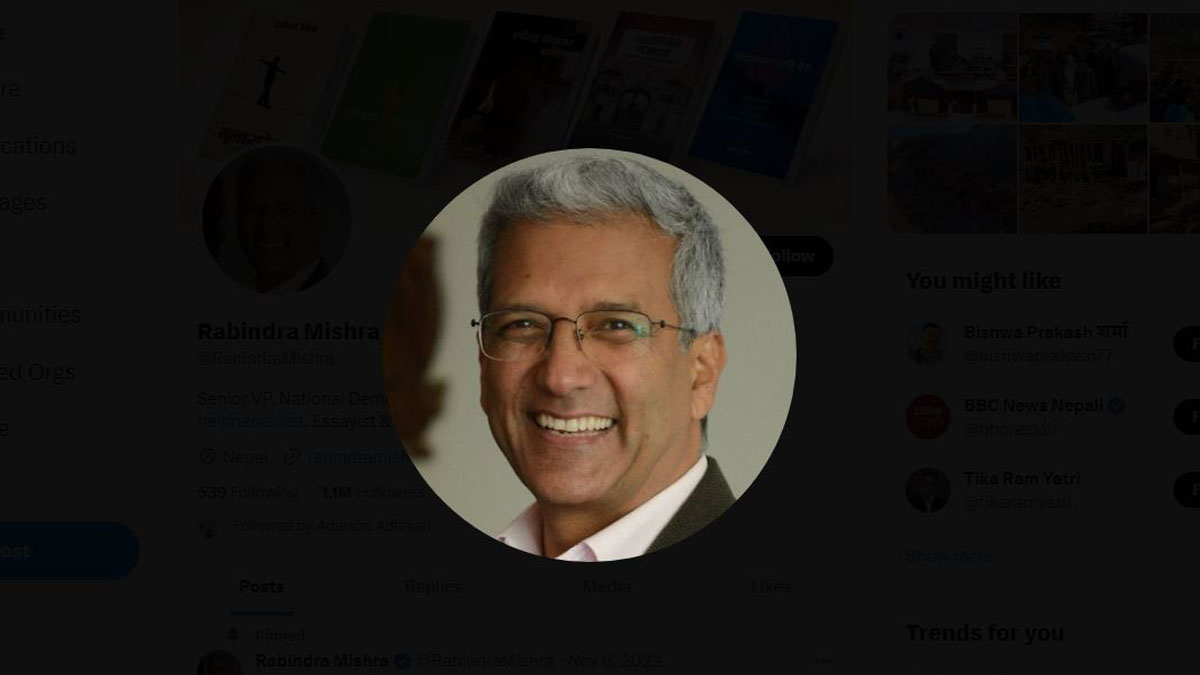
In a sharply satirical critique directed at the recent efforts of political leaders to strengthen Nepal’s republic, Rabindra Mishra, the Senior Vice Chairman of the Rastriya Prajatantra Party (RPP), took to social media to shed light on a host of contemporary challenges facing the nation.
A staunch supporter of the monarchy , Mishra’s remarks were intended as a biting critique, shedding light on the challenges faced by the country under the republican system.
In a Facebook post posted on Wednesday, he outlined a list of 25 points, concluding each with the phrase “because of the Monarchist.” Despite the satirical tone, Mishra’s points delved into various aspects of the country’s socio-political landscape, revealing deep-seated concerns about its current state.
Among the issues highlighted by Mishra were economic crises, business downturns, the politicization of state institutions, corruption, social decay, communal violence, and the migration of young people abroad. While his language, particularly the phrase “because of the Monarchist,” was used rhetorically, it aimed to draw attention to the perceived failures and shortcomings of the political class following the establishment of the republic in Nepal.
Mishra’s critique specifically revolved around the recent commitment of political leaders to enhance the republican system.
Mishra facebook post reads, “12 points to fight with ‘one point’, preparations have begun, because:
1. It looked like the system was going to be in crisis — because of the Monarchist.
2. 50% of shutters across the country are down — because of the Monarchist .
3. Big business is in big trouble — because of the Monarchist.
4. The debt burden on the economy became almost 45% — because of the monarchists.
5. The governor says the economy could be in crisis — because of the monarchists.
6. Development expenditure fell to 17% — due to Monarchist.
7. From professors, employees, lawyers, everyone forms a party wings — because of the Monarchist.
8. Every organ of the state except the army was fatally politicized — by the Monarchist.
9. The state of public education and health deteriorated — because of the Monarchist.
10. The country became one of the most corrupt in the world — because of the monarchists.
11. Nepal became the poorest country in Asia — because of the monarchists.
12. Lalita Niwas, refugees, gold and other hundreds of scandals happened — because of the Monarchist.
13. Chances of communal and religious violence increased — due to Monarchist.
14. Every year, 1 million youths including skillfull go abroad — because of the Monarchist.
15. Neighbors developed rapidly, we could not — because of the Monarchist.
16. Agriculture, tourism, infrastructure, urbanization, land use, information technology, policy couldnot be made for anythiing — because of the Monarchist.
17. The society as a whole had a bad moral decay — caused by the monarchists.
18. People are dead, can’t eat/sleep, the top leader in the leaders are worried about preserving the republic/secularism — because of the Monarchist.
19. Madhes say they will rebel against the state center — because of the Monarchist.
20. There is Rs 5 billion in the disaster fund but the earthquake victims did not get relief — because of the Monarchist.
21. The ‘ghost’ of the monarchy made afraid much — by the monarchists.
22. The new/old politics of all the ‘prachanda-way supporter ‘ was questioned — because of the monarchists .
23. Nepal as a ‘nation and state’ was rapidly eroded — due to the monarchists.
24. Once the entire power had to be used to preserve the system — because of the monarchists.
(keep adding)
25. My comment: If everyone doesnot learns from the mistakes made by everyone in the past and doesnot goes to a new understanding through a peaceful transition between the king, political parties and people, the future of this country and the people of this country is not guaranteed. Wake up awareness in time!”
His satire has ignited debates about the effectiveness of the republican system and calls for a collective awareness in Nepal’s political landscape.


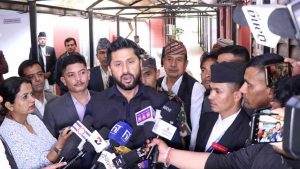
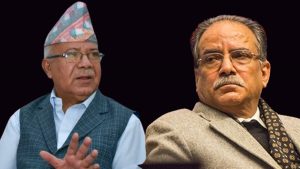

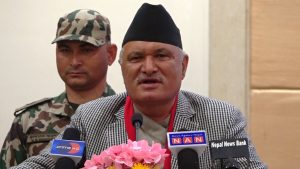
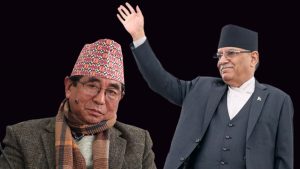



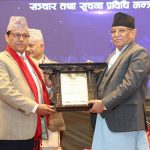


Comments